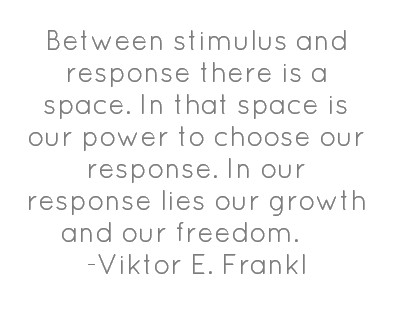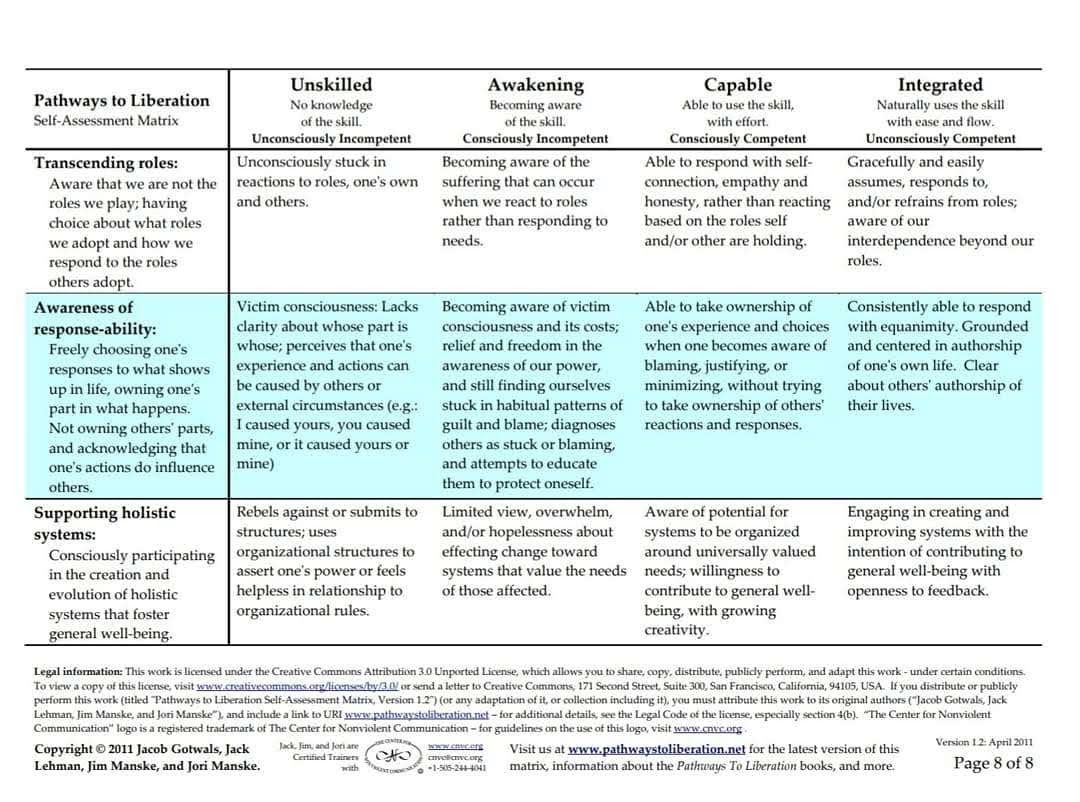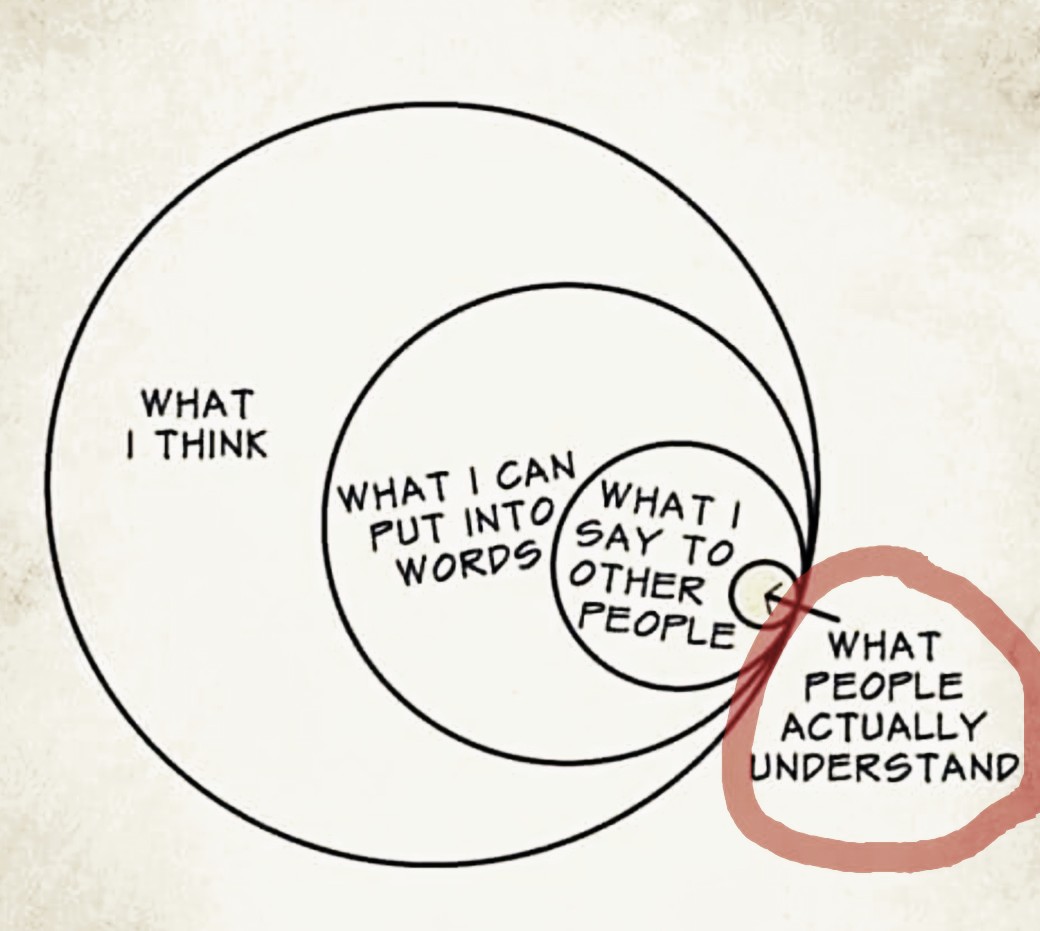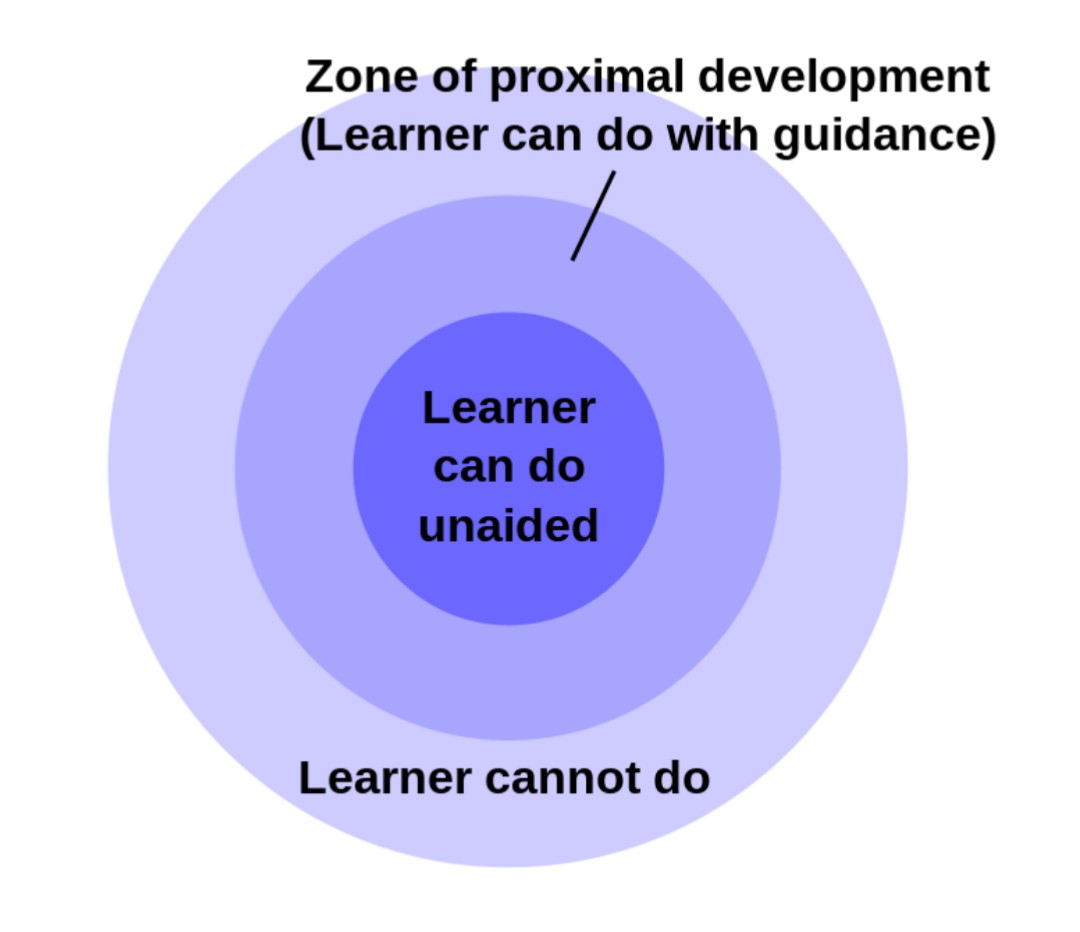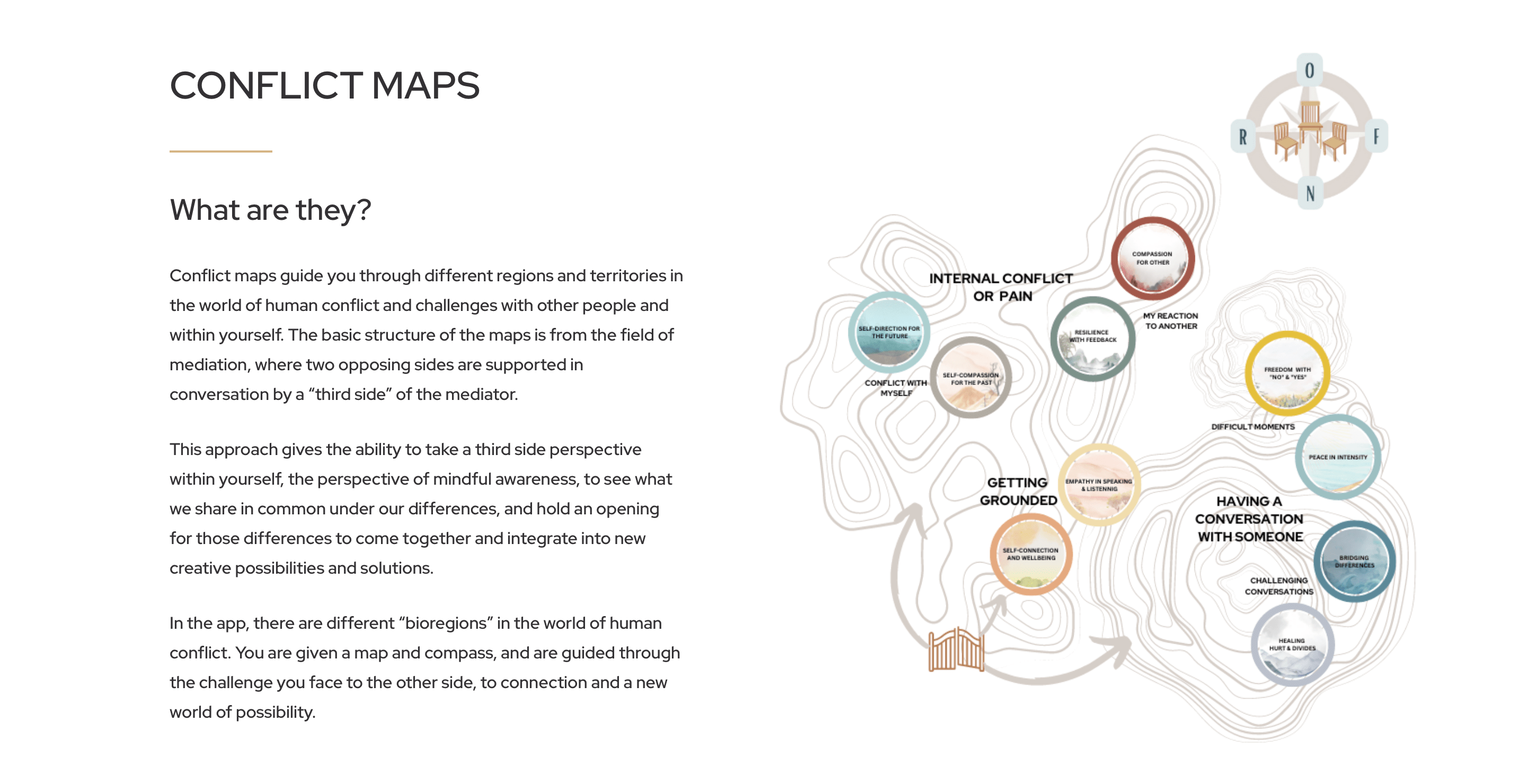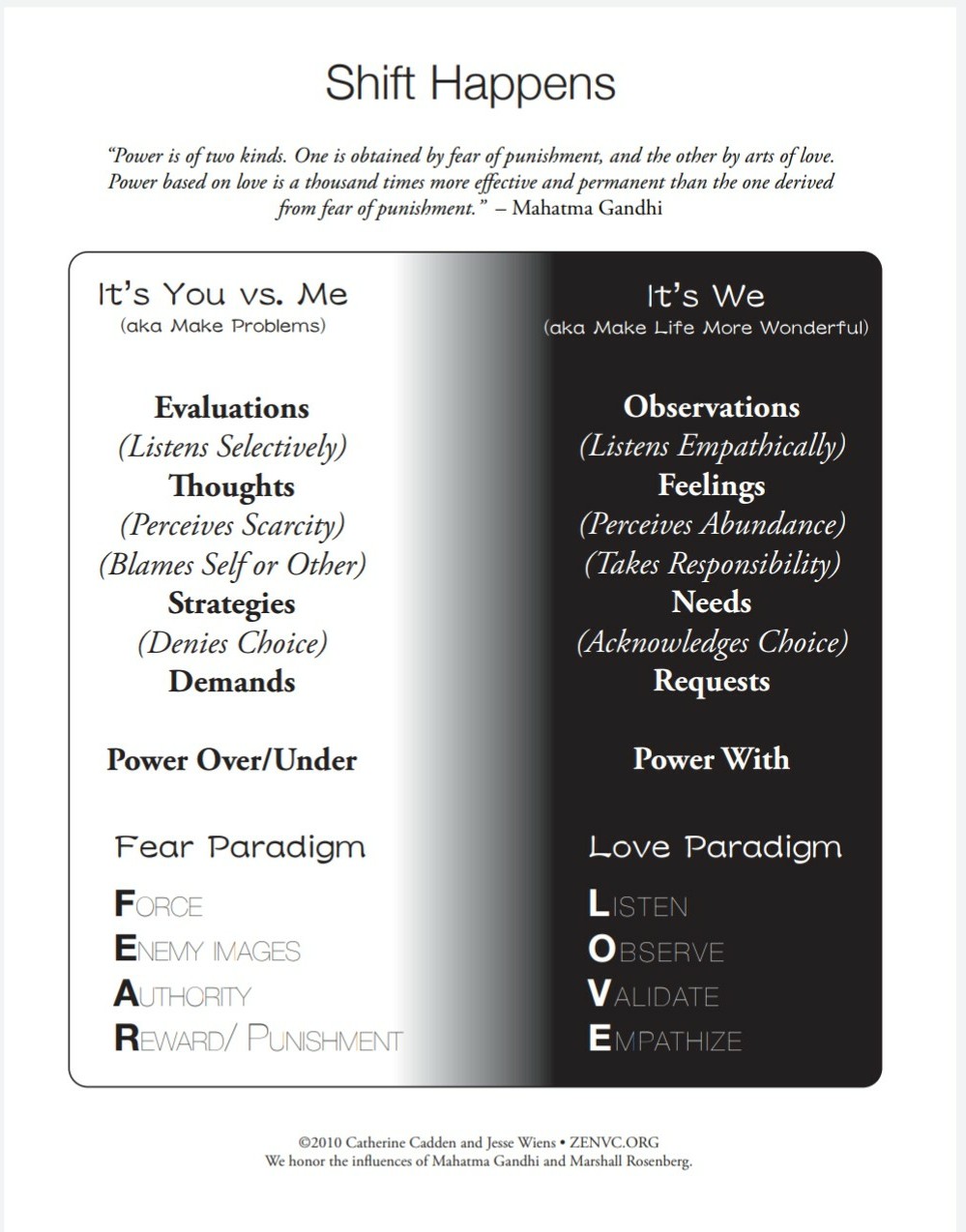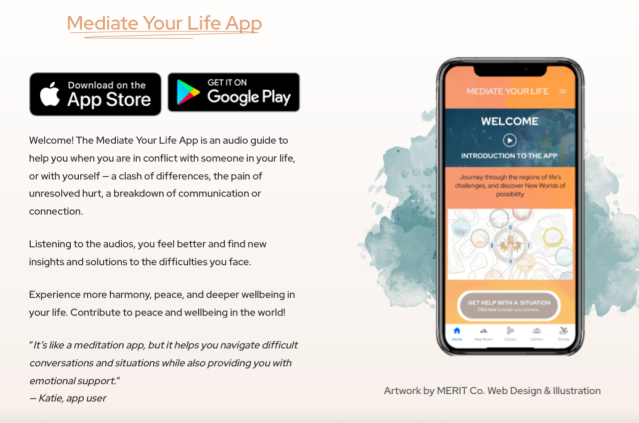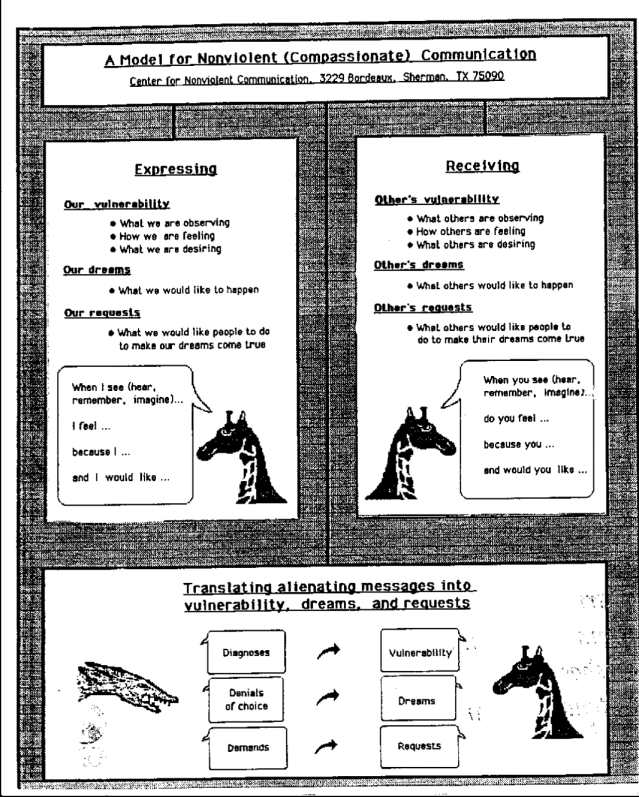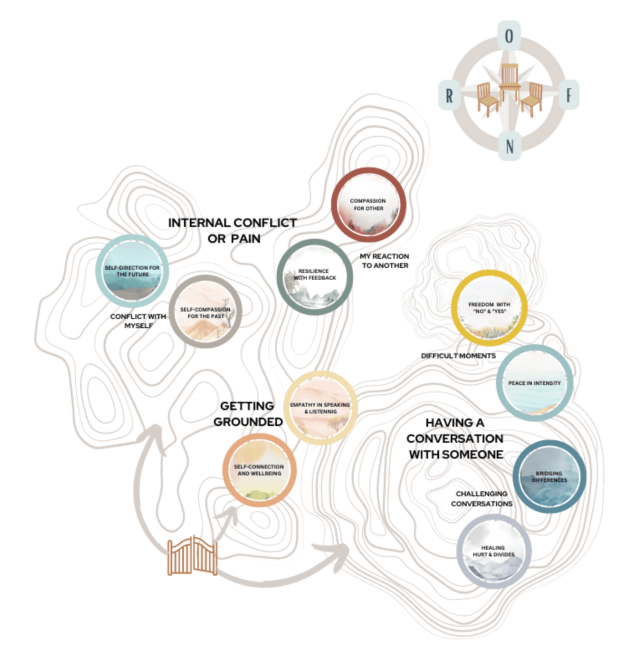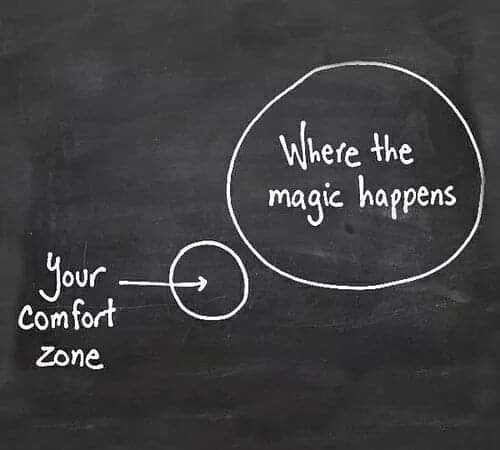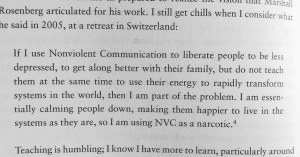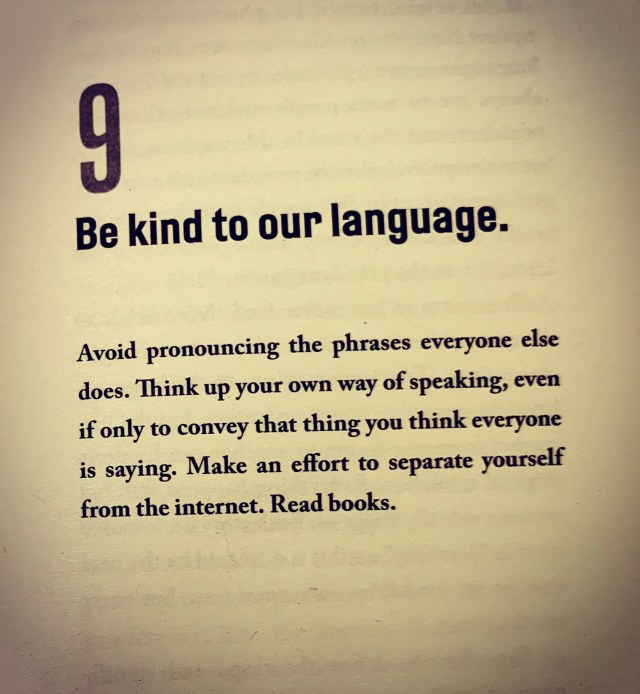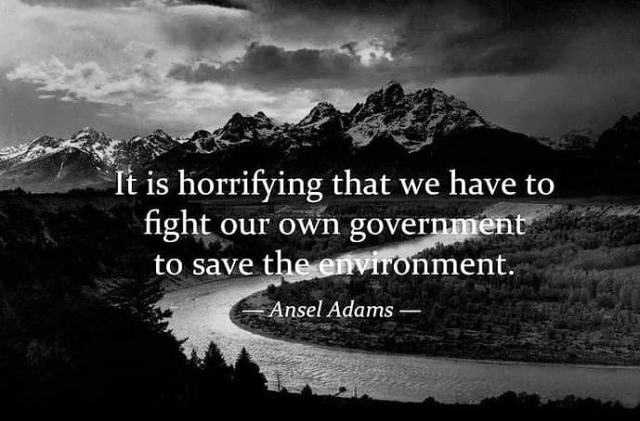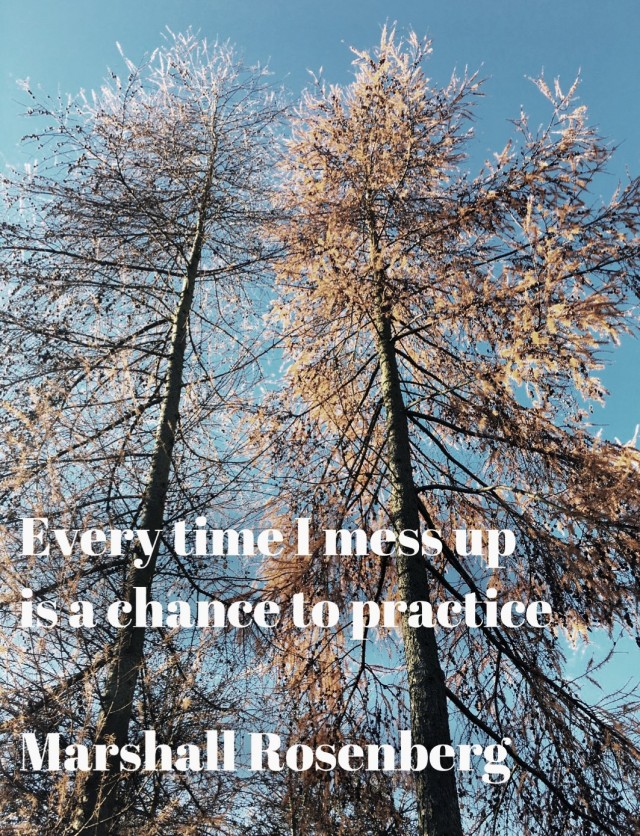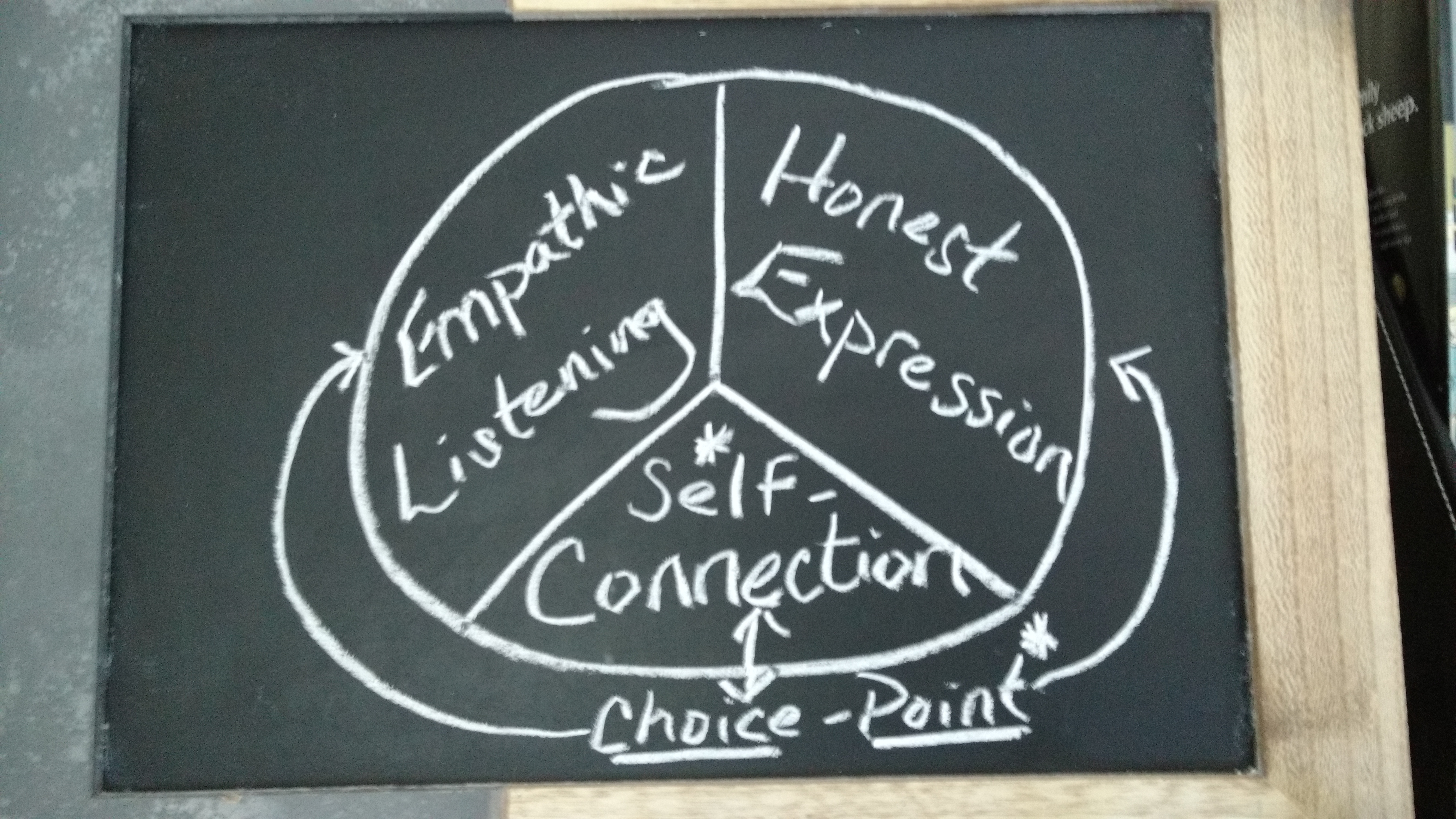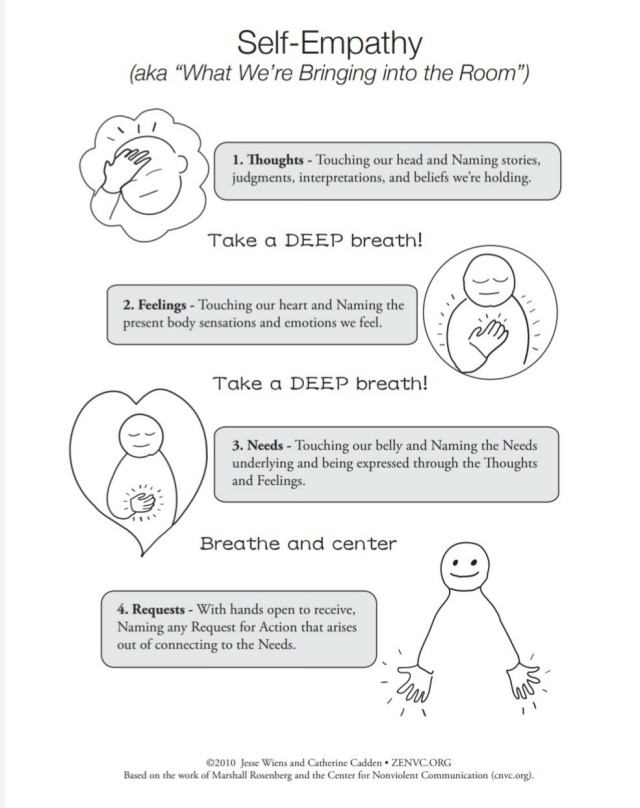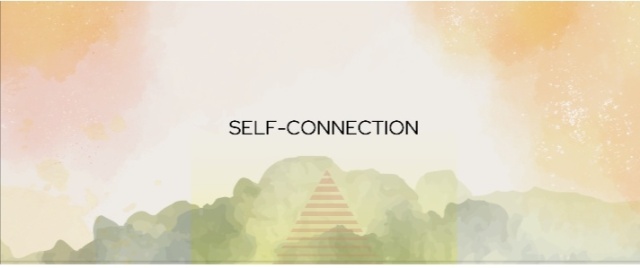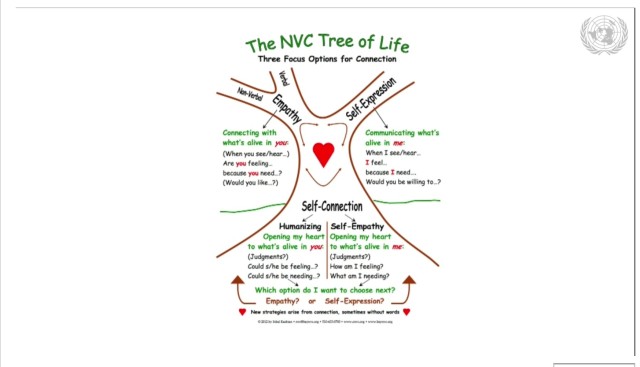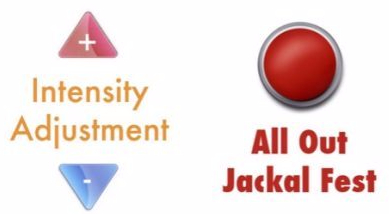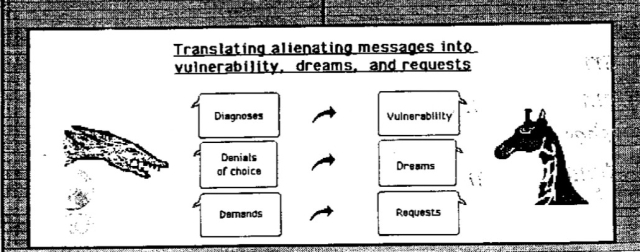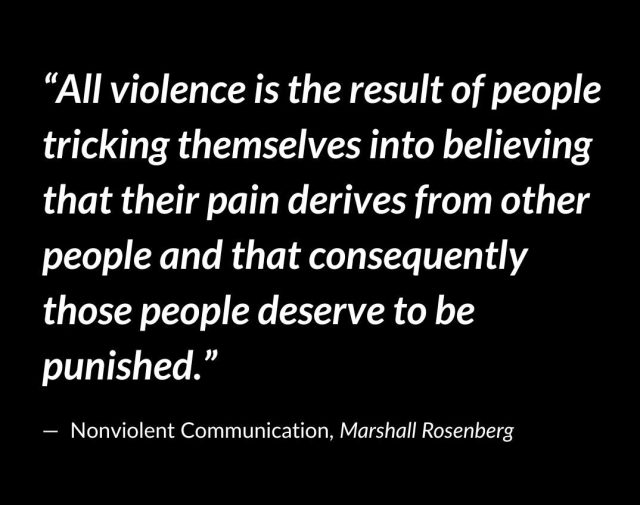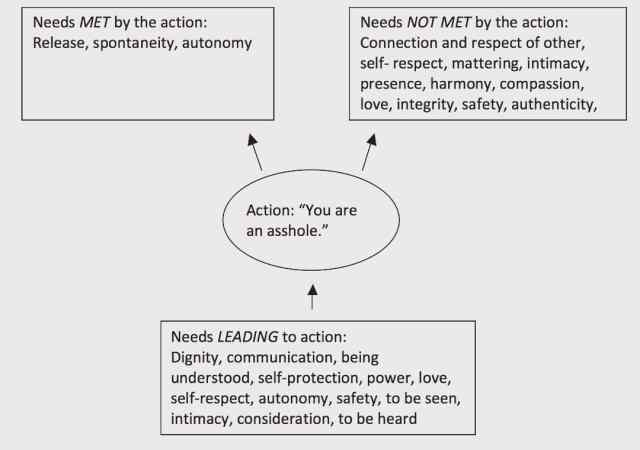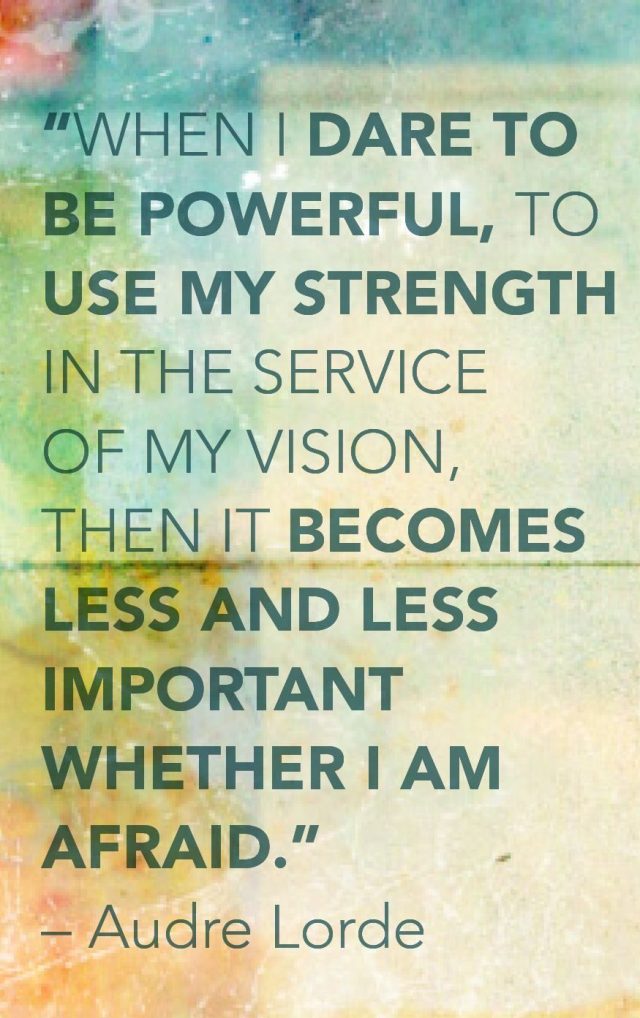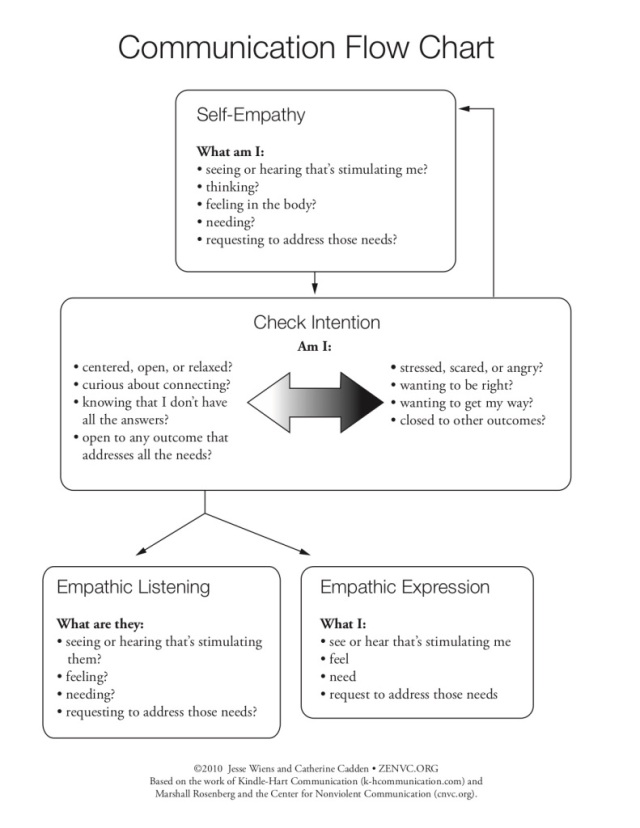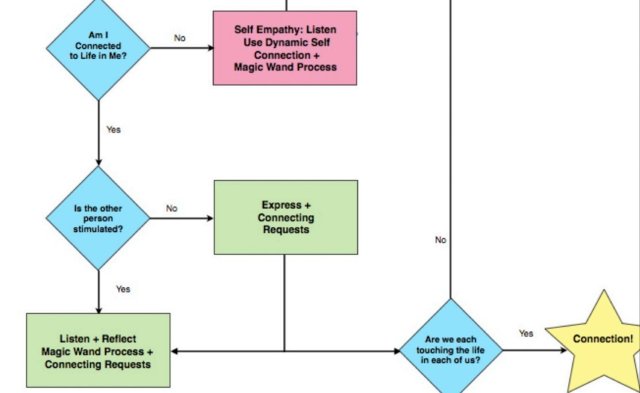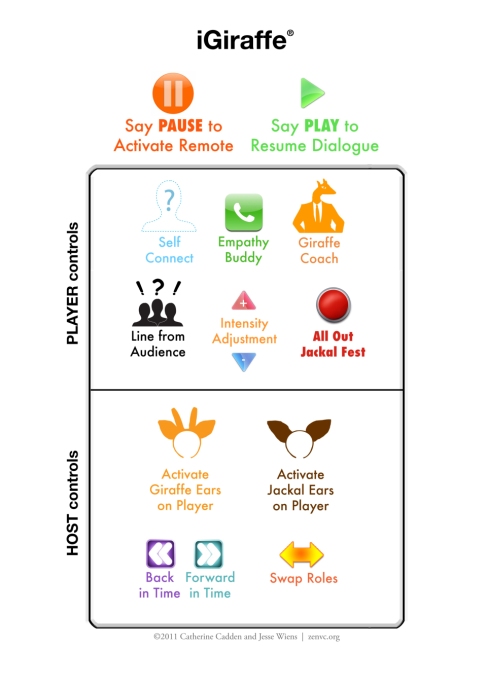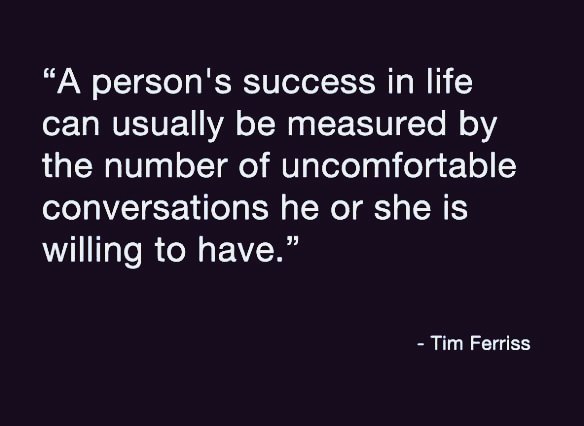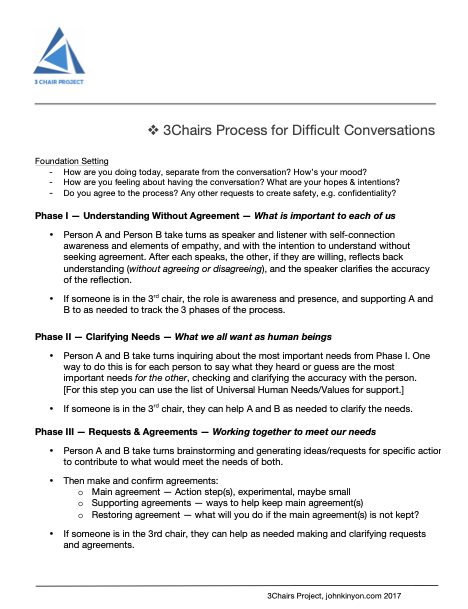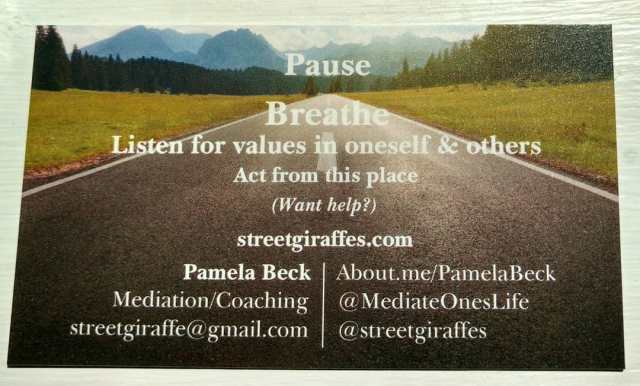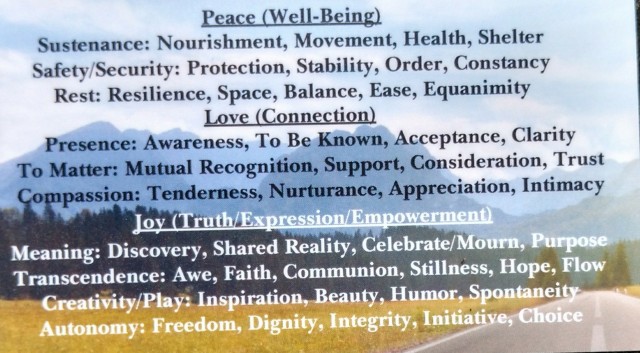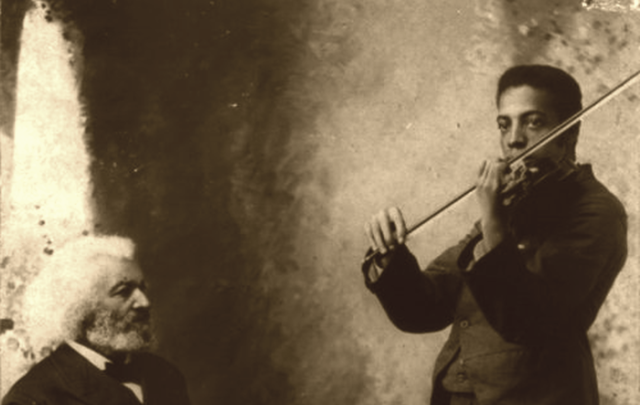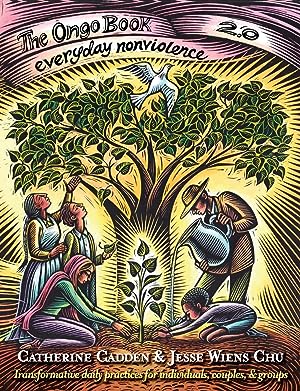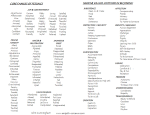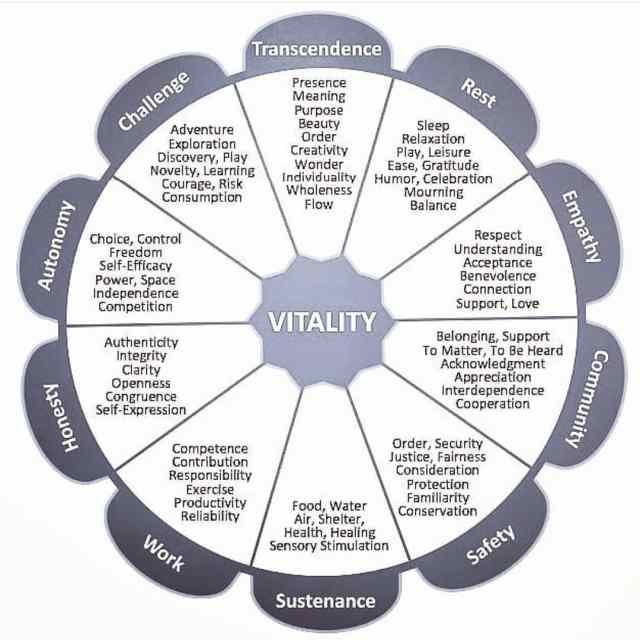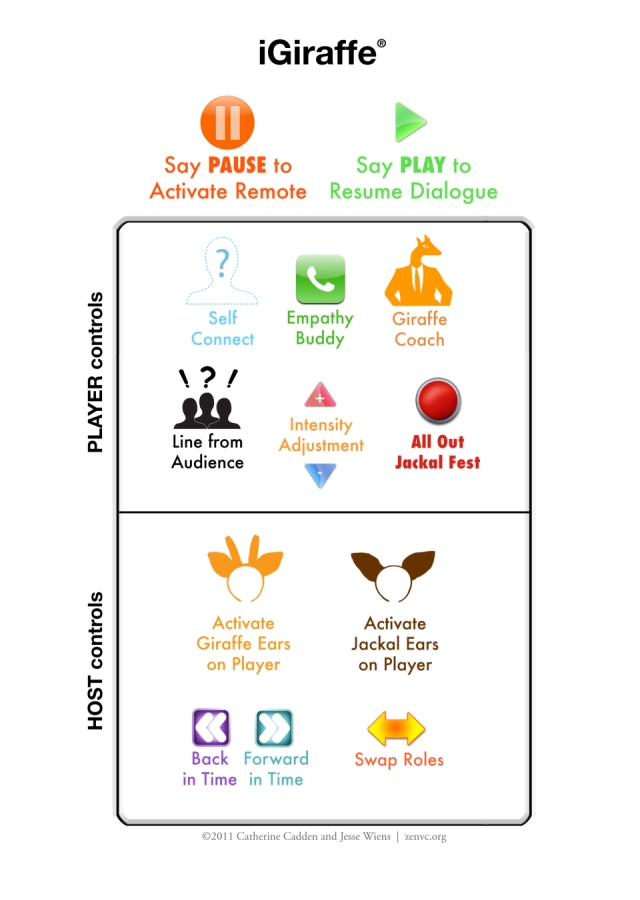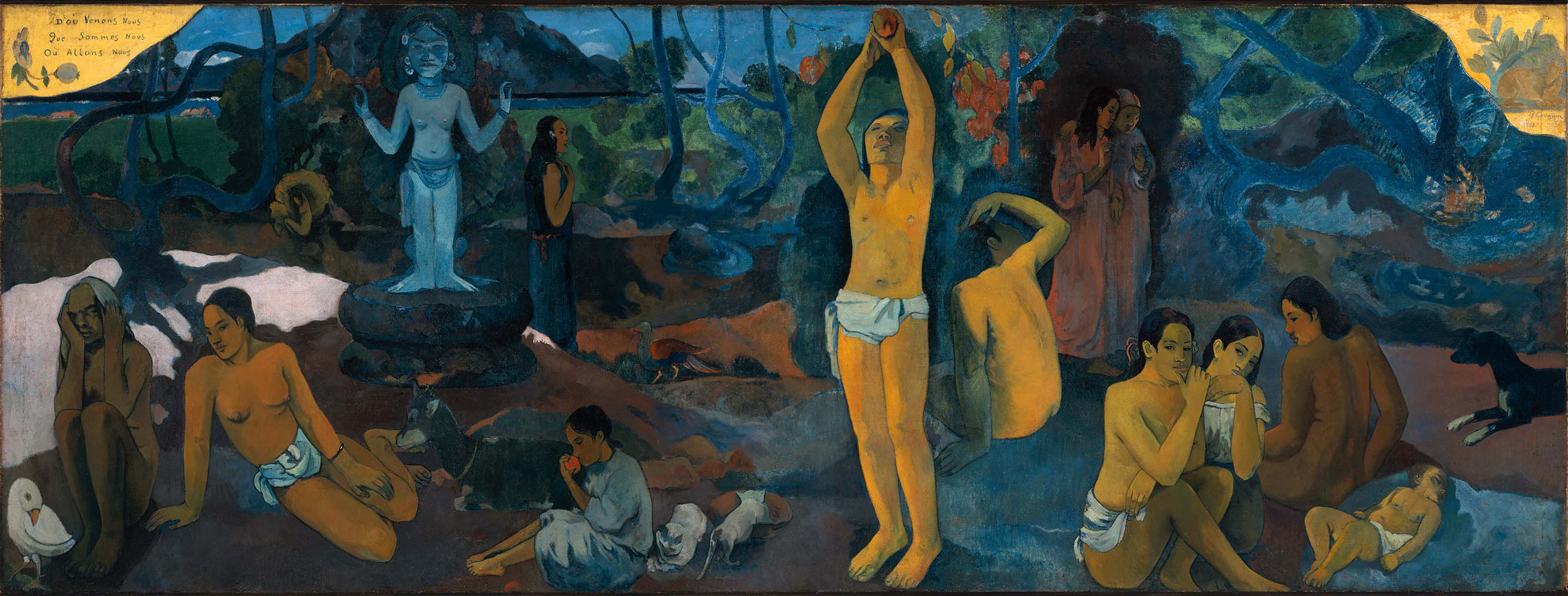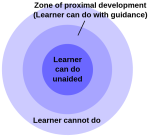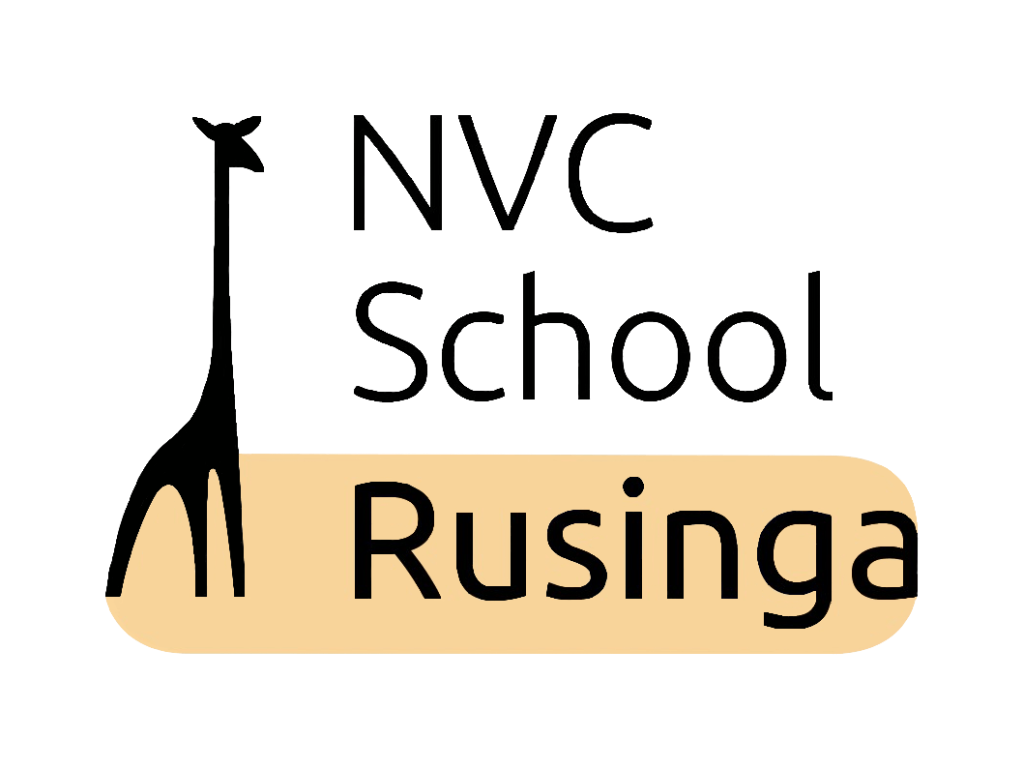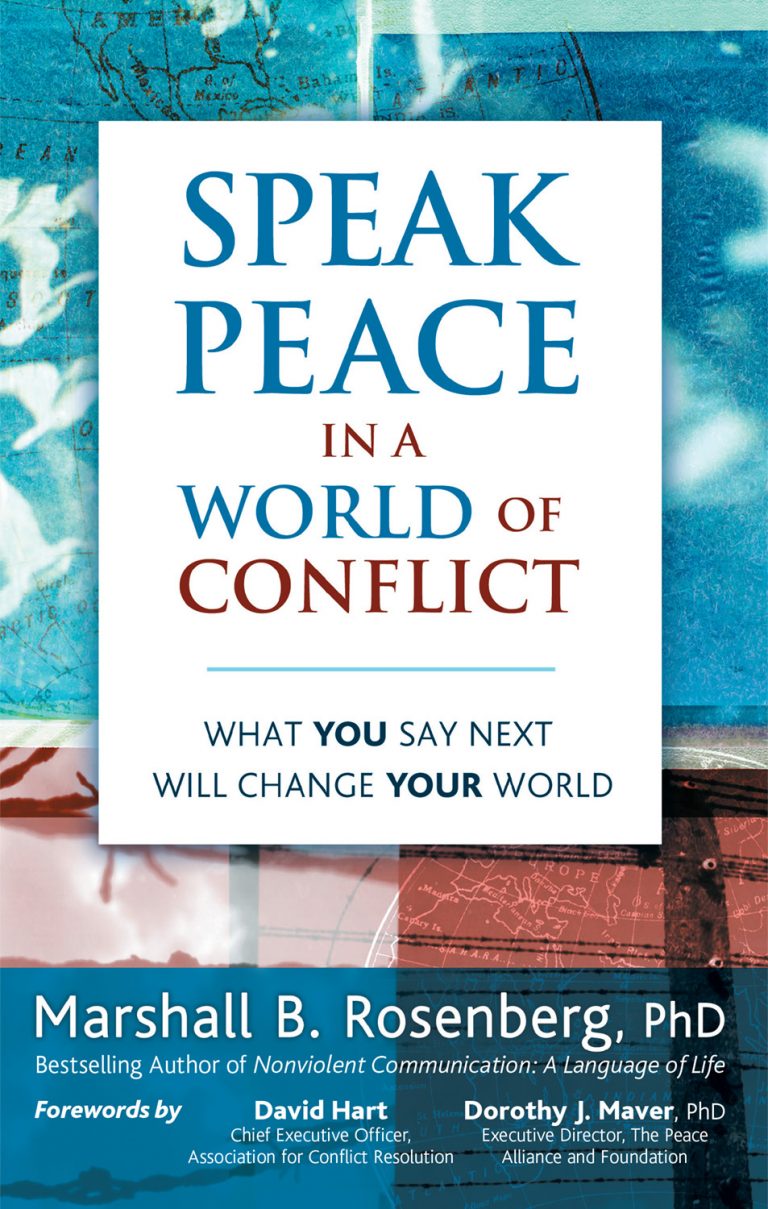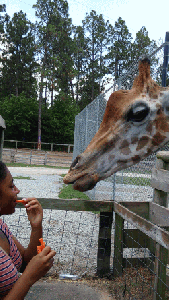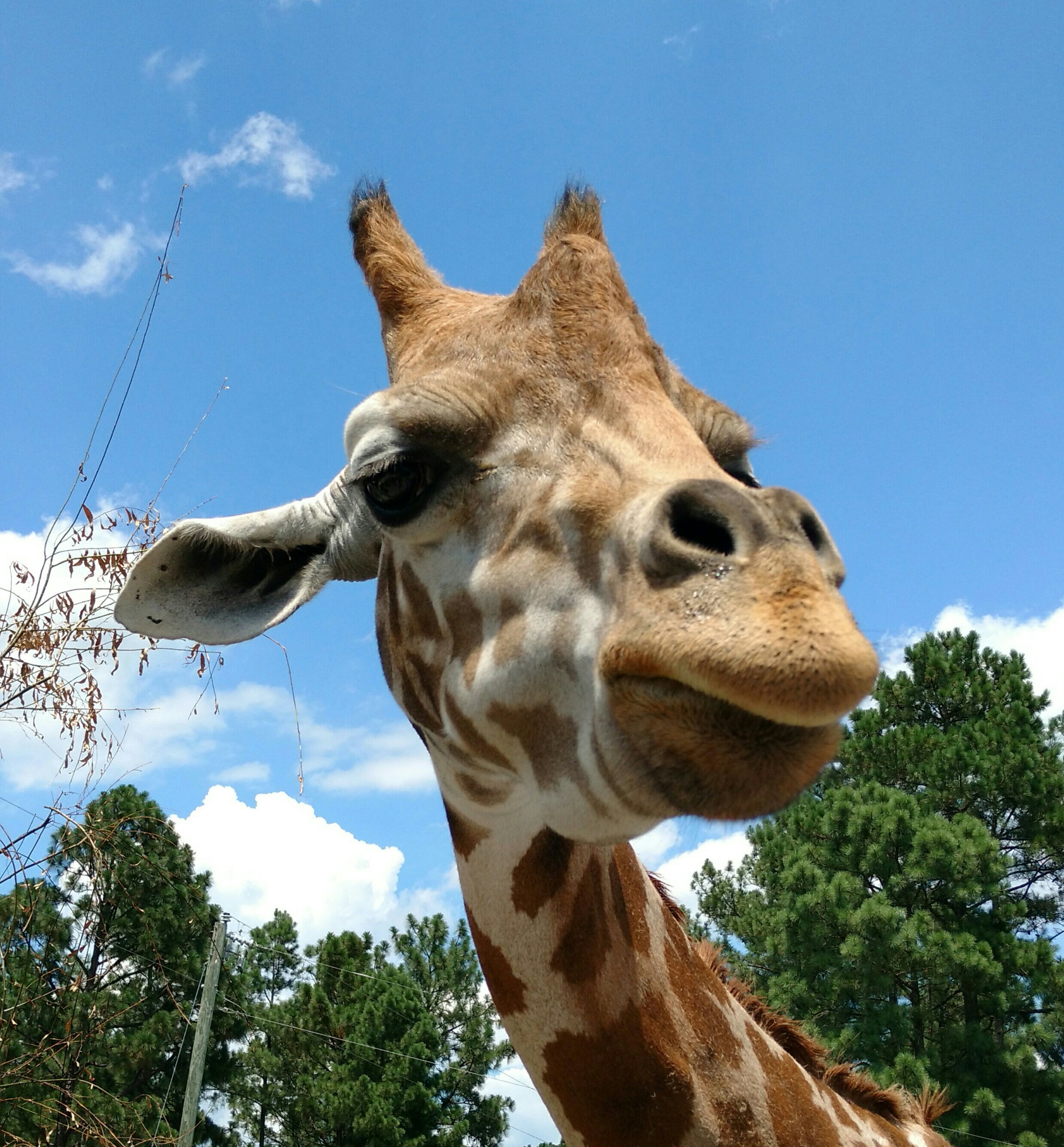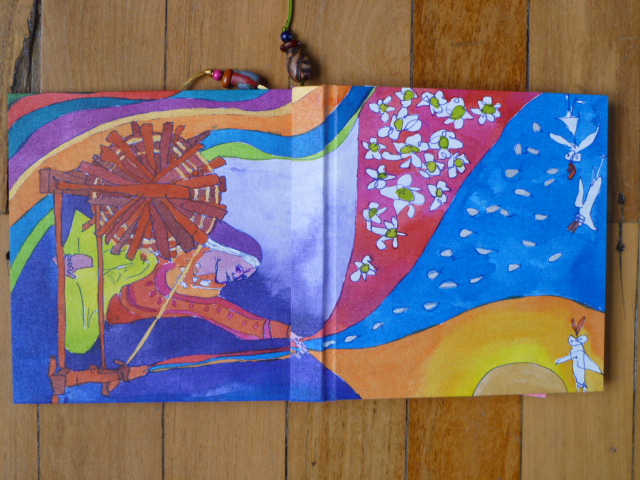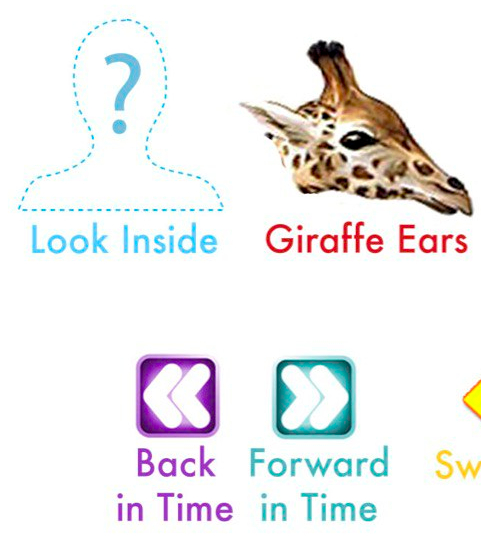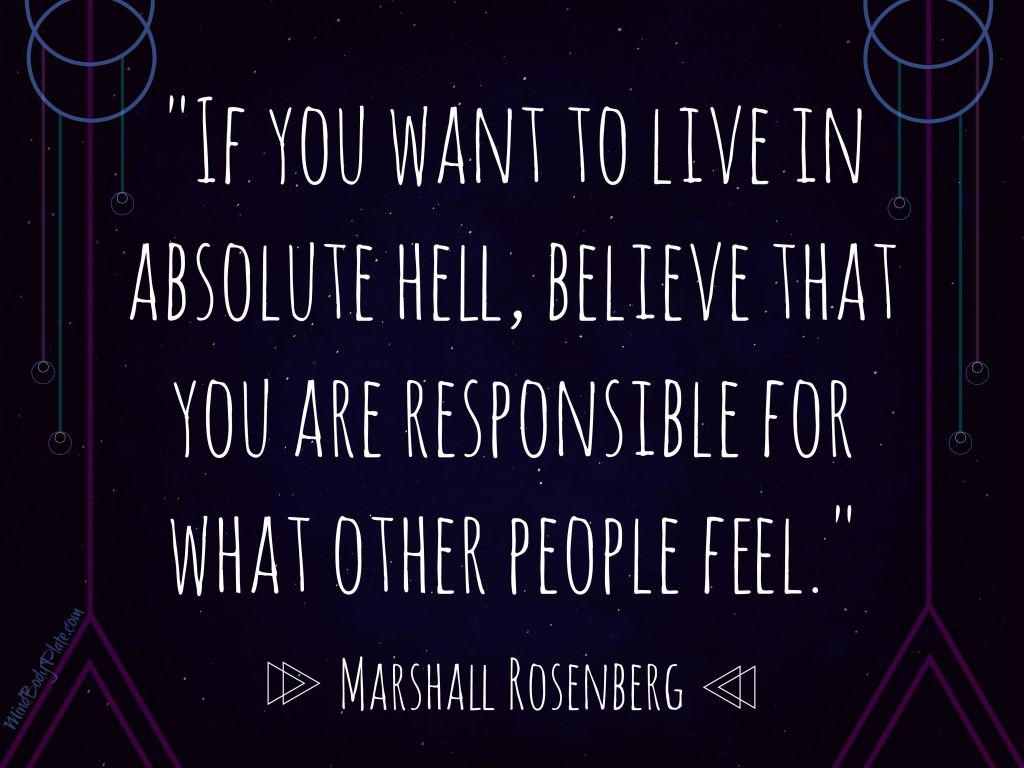NVC Assumption — Taking responsibility for our feelings: We aim to connect our feelings to our own needs, recognizing that others do not have the power to make us feel anything. This recognition empowers us to take action to meet our needs instead of waiting for others to change.
(via Miki Kashtan / BayNVC)
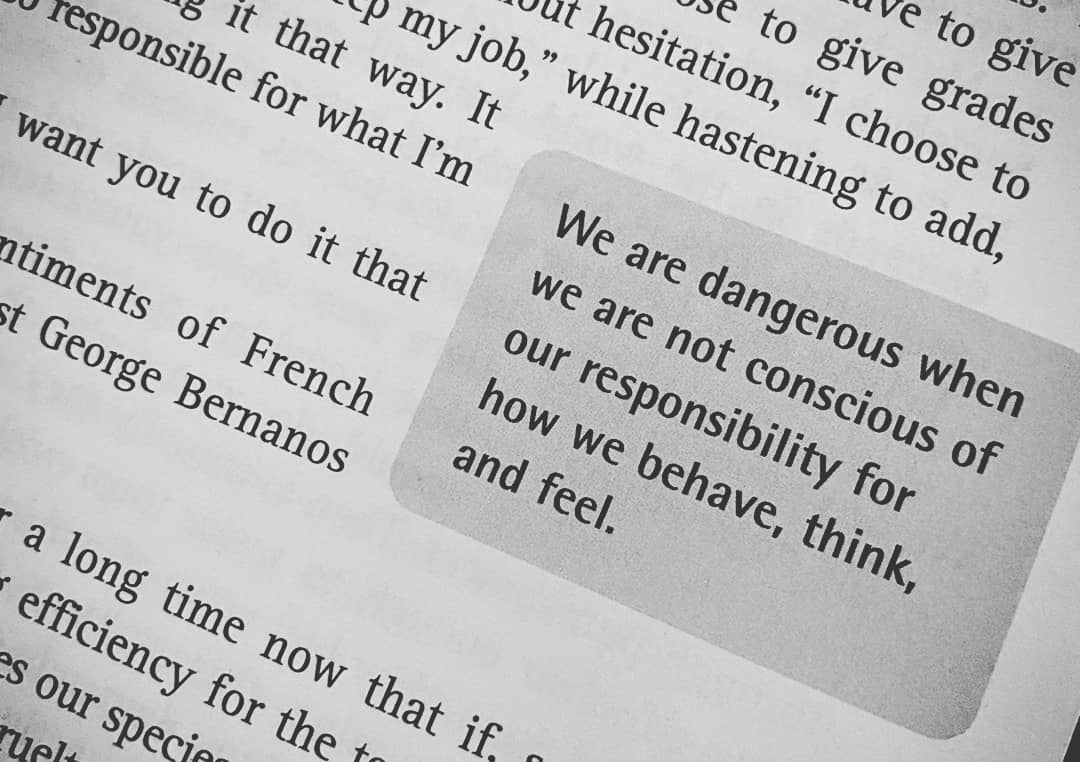
See also: Interpersonal Neurobiology (IPNB)
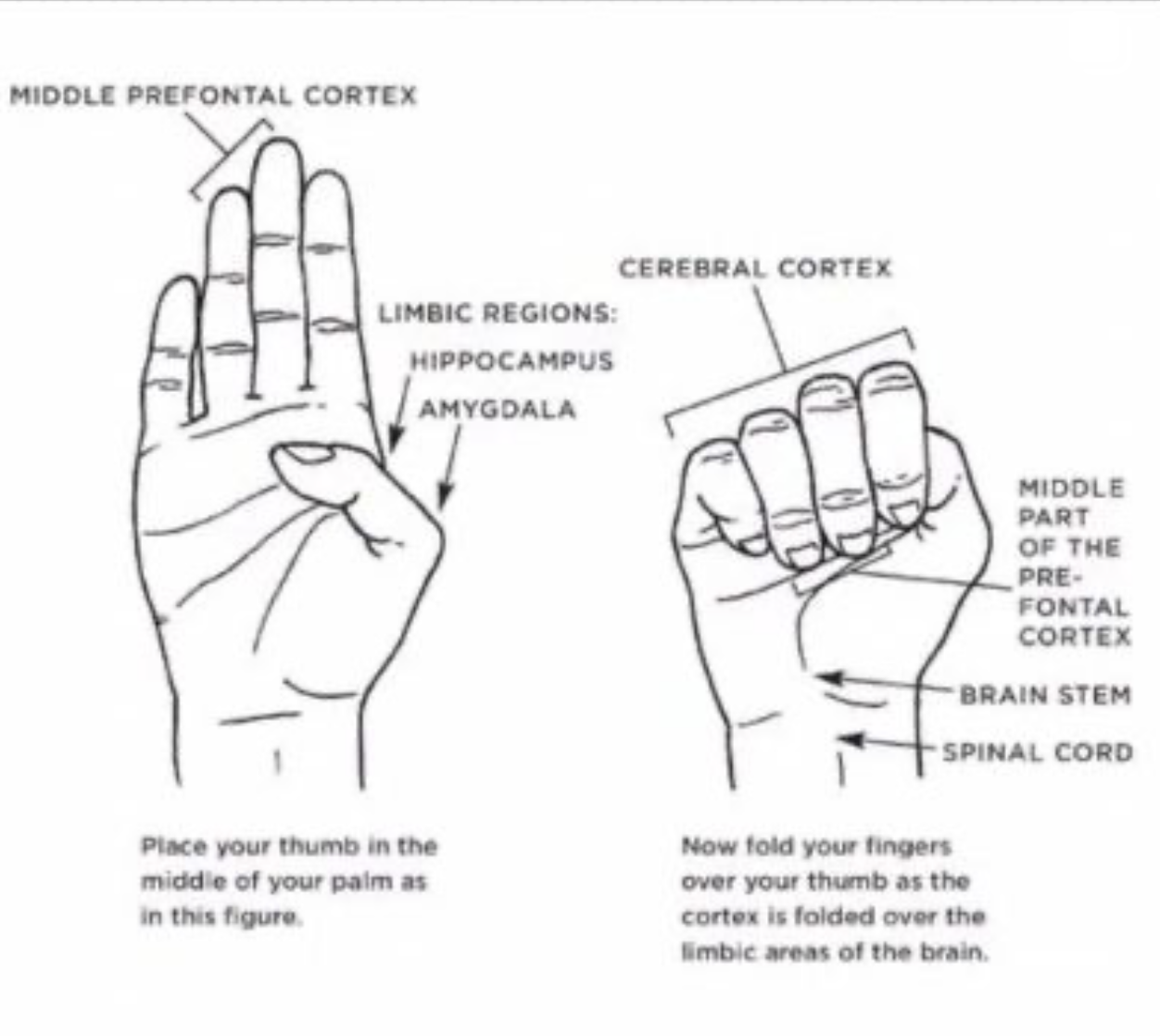
Flipping One’s Lid
What to Do When You’re Triggered
One of the biggest threats to conscious, compassionate connection is when our old-brain defensive mechanisms kick in.
Once activated, these ancient survival systems run roughshod over our good intentions. Whatever strategies and skills we’ve been cultivating to support us in such moments can be easily lost under an onslaught of signals from our psyche and physiology telling us that we are not okay and that we must take extreme, severe, decisive, and often destructive action.
Is all of our training and learning really for naught? (continues)
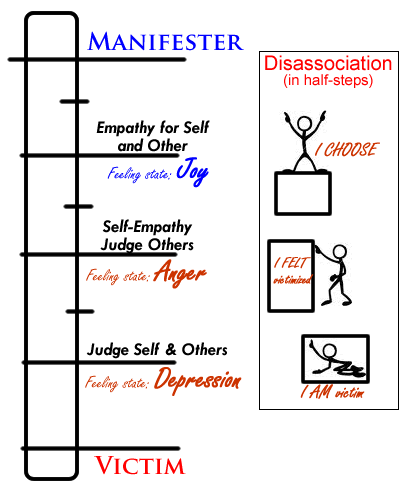
Diagram courtesy of Max Rivers of Marriage Mediation
See also: Enemy-Imagery Process

Clean Pain or Dirty Pain? – YouTube
Awareness of Response-ability

Pathways to Liberation: Self-Assessment Matrix [PDF]
| Awareness of response-ability | Freely choosing one’s responses to what shows up in life, owning one’s part in what happens. Not owning others’ parts, and acknowledging that one’s actions do influence others. |
(see bottom of page for reader friendly version of chart below)
Self-Responsibility | Capital NVC
Self-Responsibility
Taking responsibility for oneself is a cornerstone of practicing Nonviolent Communication. That is clear to me. At the same time, I’ve found it difficult to make sense of what the word “responsibility” actually means. Yet, I think I’ve made progress in sorting this out, so I want to share some musings on this topic, on the chance that they might be helpful.
What has made the question challenging is that the idea of “responsibility” is commonly associated with ideas that are part of the mainstream “domination” culture, but which NVC suggests we steer clear of. Some definitions say that being responsible involves being answerable, chargeable with being the cause of, or morally accountable for. I read this as, “Being responsible means you’re the one who will be blamed or punished if people don’t like the outcome.” Another idea is that one has an obligation to attend to what one is responsible for. Yet, NVC suggests that focusing on blame, punishment and obligation tend to not be the most life-affirming ways of engaging the world.
Some people I’ve asked what it means to be responsbile have offered the cute definition, ” ‘Response-able’ means ‘able to respond.’ ” Alas, I don’t find this clear or satisfying — though it does point to the important idea that it makes sense to associate responsibility with with what is in our locus of control.
One of my mentors, Robert Gonzales, offers (from my memory), “We are responsible for that which happens inside us — our thoughts, feelings, and needs — and that which emanates from us — our actions.” This seems to me to be a useful characterization of what we are responsible for, yet it leaves me still wondering what it means to be responsible.
My worry that the word “responsible” might simply be incompatible with a compassionate worldview was alleviated when I realized that in designing computer software, one sometimes says that a particular subsystem is “responsible” for maintaining certain information and performing certain tasks. Clearly, in this context, responsibility has nothing to do with who is morally culpable or who gets punished if things go wrong. Rather, it’s simply a matter of clarity about whose job it is to attend to certain things. So, perhaps being responsible for our inner experience means that we think of it as our job to attend to it?
Though, even this may have pitfalls. For example, I don’t want to be told that I AM responsible for my inner experience, or it IS my job to attend to this — that smacks of a “should” or moralistic thinking or “have to,” which I find painful and disempowering. Rather, I’d prefer to think that I’m uniquely positioned to be able to do this job (nobody else has nearly as much access to knowing my inner experience) and I am uniquely likely to benefit from having this job be done, and done well. So, it may be wise for me to choose to take on this job, choose to take responsibility for my inner experience and my actions, as a way of empowering myself and benefiting myself and others. Taking responsibility is not so much an obligation as a choice I find it beneficial to make.
In light of this, what might it mean for us to take responsibility for our thoughts, feelings, needs, and actions? What it doesn’t mean is:
- When we have a concern about what we think or feel, we immediately turn to looking for someone or something to blame, or someone’s behavior to try to control. (Maybe we focus on another, or maybe we blame ourself or try to force ourself to behave in a particular way — neither is self-responsibility in the NVC sense.)
- When we want something, we jump straight to expecting someone else to provide it for us, or trying to force them to do so, or to blaming them for not doing what we would like.
What I think taking responsibility does mean is:
- When we have a concern about what we think or feel, we turn our attention to understanding what inner processes contributed to what we are noticing. What are the assumptions and interpretation we’ve made, and what were our actual observations? Can we be open to the possibility that our thoughts might not be true, and hold our interpretations loosely? What needs are alive for us? What would we ideally want to have happen? Does our reaction really relate to the present, or is the present situation re-awaking old wounds involving needs that were deeply unmet long ago?
- When we want something, we connect to what needs we are trying to meet. And we choose to honor those needs and optionally try to meet them. Honoring a need might involve acknowledging it, letting it matter to us, yet choosing to leave it unmet for the moment and simply mourn it. Or we might try to both honor and meet the need, either by taking an action to directly meet the need, or by making a request to someone else to do something that we hope will help to meet the need. Taking responsibility for our own needs doesn’t mean that we have to be able to meet all our needs without others’ help. It does mean that we can choose to seek help or collaboration as a strategy for meeting needs.
- We seek to increase our awareness of all our needs — having taken on the job of being the one in charge of honoring and meeting our needs. Awareness of all our needs tends to contribute to the possibility of our experiencing more wholeness, integration, and integrity. In light of our need to contribute to others’ well-being, meeting our needs will likely involve becoming more aware of others needs as well.
- We are aware of our ability to choose, including the possibility of choosing to pause after we are stimulated, before deciding on a response.
- We notice what our actions are, and what effects follow from our actions, and we use this as a source of learning to inform our future actions.
- We are discerning in our awareness that our actions affect and yet do not determine what others experience. (This is a rich topic that I hope to write more about on another occasion.)
For me, being self-responsble is all about empowerment — via noticing what is potentially in my locus of control, getting to know myself better, and making conscious choices to do what is in my power to do to make life more wonderful.
One of the pit-falls of coming to appreciate the value of self-responsibility, is that it can be tempting to blame others who we see as not choosing to take responsibility for themselves in this way. When faced with this temptation, I want to remember that blame and believing that others “should” be a particular way is likely to contribute to my suffering and theirs. So, while I might experience some sadness around a longing for others to be fully empowered, I also want to trust that on some level there are good reasons for the choices another has made, be curious about those reasons, be aware of how much I don’t know, and remember my intention to live in an energy of love.
I encourage you to choose to take responsibility for your own life — as a means of self-empowerment — and to refrain from using this idea as a basis for judging yourself or others.
I wish for you love and empowerment.
(If this essay has contributed to you in some way, I’d enjoy hearing from you what in particular you found helpful. — Bob 12/27/2011)

Beneath from paraphrased notes of a presentation also offered by Bob Wentworth:
Self-responsibility, a kind of independent agency (which entails a choice as to where we put our attention, not outward, but inward), comes prior to interdependence.
Self-responsibility entails shifting our attention from blaming and finger-pointing at that which lies outside of us (i.e. “You make me mad/happy!” “I’m the victim of what you do!”) to our own role in how we experience life (i.e. what I’m thinking, what my needs are, etc. as a focal point for what generates our experience). This entails a mindfulness of relating our stories to our needs. Noticing that if our interior narrative believes that what is longed for is within our grasp, the ensuing feelings will be positive (and if not, then negative feelings will result). By choosing to place our attention within, we are likely to be more empowered (towards greater clarity, empowerment, mutuality). Self-responsibility as a kind of prerequisite towards engaging in the enterprise of interdependence. Noticing how we are influenced by that which lies outside of us, however the locus of power, interdependently-speaking, often entails that which is within.
YvetteErasmus.com – YouTube Channel
See also:
Self-Connection Process:
Peace, Love & Joy
John Kinyon‘s Foundation Maps Overview
(via MediateYourLifeApp.com)
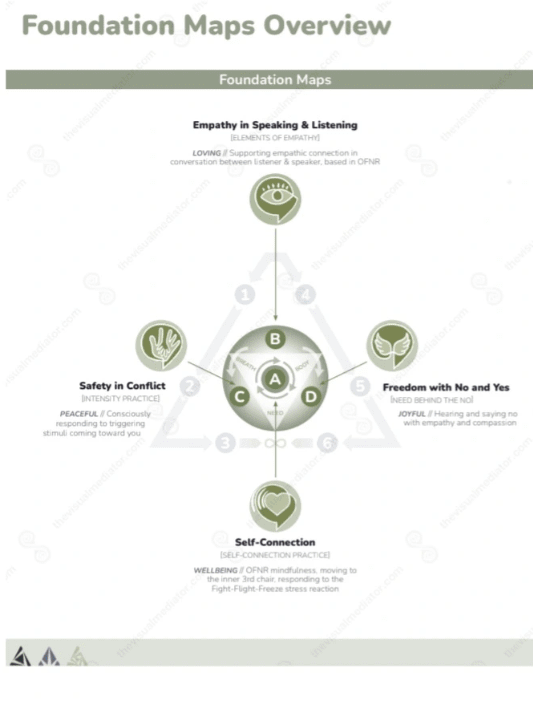 See also: Learn with John Kinyon &
See also: Learn with John Kinyon &
OFNR handout via MediateYourLifeApp.com
&
Yvette Erasmus, PsyD‘s Conversations from the Heart Blog / Q&A / Podcast
This blog’s “Matrix” page (see beneath) referencing how to use the Pathways to Liberation: Self-Assessment Matrix (e.g. an audio of Jim and Jori Manske’s webinar utilizing a strengths/edges worksheet)
| Awareness of response-ability | Freely choosing one’s responses to what shows up in life, owning one’s part in what happens. Not owning others’ parts, and acknowledging that one’s actions do influence others. |

Cup of Empathy’s Marianne demos self-responsibility:
cupofempathy.com/videos
We are dangerous when we are not conscious of our responsibility for how we behave, think, and feel.
~ Marshall Rosenberg, “Nonviolent Communication”
List: Feelings & Needs

Basics of NVC — Introduction
by Miki Kashtan & Inbal Kashtan
Nonviolent Communication (NVC) has been described as a language of compassion, as a tool for positive social change, and as a spiritual practice. NVC gives us the tools and consciousness to understand what triggers us, to take responsibility for our reactions, and to deepen our connection with ourselves and others, thereby transforming our habitual responses to life. Ultimately, it involves a radical change in how we think about life and meaning. NVC is based on a fundamental principle:
Underlying all human actions are needs that people are seeking to meet, and understanding and acknowledging these needs can create a shared basis for connection, cooperation, and more globally – peace.
Understanding each other at the level of our needs creates such connection because, at this deeper human level, the similarities between us outweigh the differences, giving rise to greater compassion. When we focus on needs, without interpreting or conveying criticism, blame, or demands, our deeper creativity flourishes, and solutions arise that were previously blocked from our awareness. At this depth, conflicts and misunderstandings can be resolved with greater ease… (continues)
Universal-Human-Needs
See additional needs/values lists: Handy-Handouts
Blame, Responsibility, & Care
| Miki Kashtan, Ph.D. |
| The Fearless Heart |
One of the core milestones on the path of consciousness transformation is the moment when we can fully integrate the radical awareness that our emotional responses to the world and to things that happen to us are never caused by another person. This awareness stands in stark contrast to our habitual speech, which states that we feel what we feel because of what someone else did. Instead, we learn, if we apply ourselves deeply to this practice, that our emotions are only caused by the meaning we assign to what someone did, and that meaning is generated from within us, not by the actions.
How We Create Our Experience
The version of this path that is specifically taught as part of training in Nonviolent Communication (NVC) is the idea that our feelings emerge from our needs. For years, I was teaching NVC in exactly that way, naming feelings as caused by our needs, categorizing them into those feelings that arise when our needs are met and those that arise when our needs are not met. Over time, this neat package became more complex, as I realized that whether or not my needs are met is, in and of itself, an assigned meaning to what happens rather than some “objective” reality that is “given” by what happens.
Why do such distinctions matter? I am profoundly committed to discovering and inviting others into discovering the wildest far reaches of the experience of radical inner freedom. To the extent that I believe that “my needs are not met” is a state caused by an external reality, I lose, yet again, the sense of ownership of my experience. I have, time and again, seen people shift their language without shifting their inner conviction that, in some fundamental way, the other person is the one who causes their experience. “I am angry because my need for respect is not met” takes only a small bit of responsibility for the experience compared to “I am angry because you spoke to me in a disrespectful way.” The other person is absent linguistically, not in essence.
The freedom that is available to me in such a moment arises when I become fully and crushingly aware that I am the one who read what was said as not meeting my need for respect, and that I have full choice about how I interpret what the other person did. Some interpretations will lend themselves to more or less pain for me. It is not my needs as abstract entities that affect my experience, it is my needs as a dynamic, lived in the moment, continually re-interpreted, source of meaning in my life, coupled with my interpretation of the other person and their motivation… (continues)

Matrix co-creators Jim & Jori Manske have suggested these five skills as “easy ways to integrate NVC, anywhere/everywhere” [Matrix PDF]:
-
Presence
-
Observing
-
Feelings Awareness
-
Needs-Consciousness
-
Gratitude


Privilege, Responsibility, & Nonviolence
How can the more privileged among us better hear the less privileged?
Miki Kashtan Ph.D.
Posted Jul 15, 2017
When I first heard Marshall Rosenberg, back in 1994, say that the actions of another person are a stimulus, and never a cause, for my feelings, I was shocked. Little did I know that this statement would become the nucleus of my growing understanding about what has come to be called self-responsibility in the community of practice that I belong to: those who have chosen to adopt Nonviolent Communication (NVC) as a core organizing principle of our lives and work. This is a spiritual practice that is surprisingly demanding in moments when it’s so tempting to think that I am having the experience I am having, or that I am doing what I doing, because of what someone else is doing or some other force that is outside me. Locating the source of my inner experience and my choices within me has been the most difficult and most liberating aspect of my practice.
Equally liberating, and far less comfortable, has been the twin practice of taking responsibility for my actions and choices and their effects within an interdependent world. The juxtaposition of the two conjures up mystery: my actions, however harmful they may be, don’t cause the feelings of another, nor are their feelings unrelated to my actions. The nature of the relationship is elusive and complex, as all interdependence is. When you add power differences to the mix, responsibility, all around, becomes an achievement few of us can step into fully, without blame of self or other. Teasing apart this complexity is one of the ways I aim to use the privilege I have in the world in service of transforming the structures and effects of privilege… (continues)
Beneath is excerpted from & courtesy of
Pathways to Liberation: Self-Assessment Matrix
| Awareness of response-ability | Freely choosing one’s responses to what shows up in life, owning one’s part in what happens. Not owning others’ parts, and acknowledging that one’s actions do influence others. |
| Unskilled No knowledge of the skill. Unconsciously Incompetent | Victim consciousness: Lacks clarity about whose part is whose; perceives that ones experience and actions can be caused by others or external circumstances (e.g.: I caused yours, you caused mine, or it caused yours or mine) |
| Awakening Becoming aware of the skill. Consciously Incompetent | Becoming aware of victim consciousness and its costs; relief and freedom in the awareness of our power, and still finding ourselves stuck in habitual patterns of guilt and blame; diagnoses others as stuck or blaming, and attempts to educate them to protect oneself. |
| Capable Able to use the skill, with effort. Consciously Competent | Able to take ownership of ones experience and choices when one becomes aware of blaming, justifying, or minimizing, without trying to take ownership of others reactions and responses. |
| Integrated Naturally uses the skill with ease and flow. Unconsciously Competent | Consistently able to respond with equanimity. Grounded and centered in authorship of ones own life. Clear about others authorship of their lives. |
